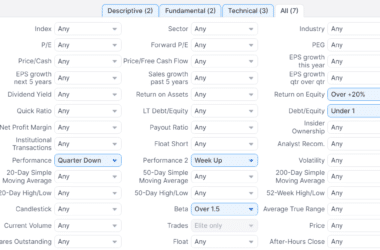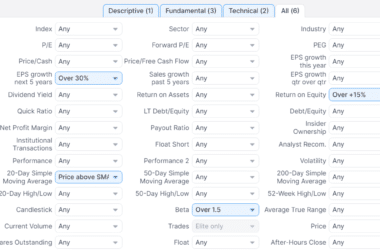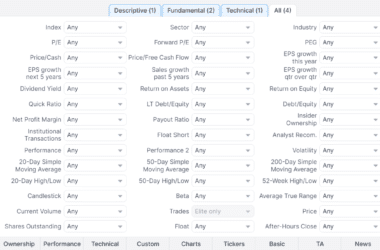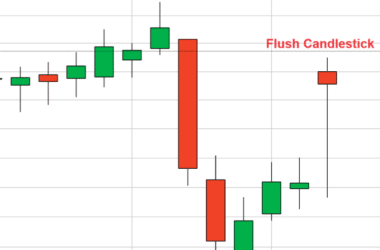In the world of investing, one term that is often discussed is earnings recession. This refers to a prolonged period of time where a company’s earnings are declining. It is usually caused by a combination of factors such as weak customer demand, higher expenses, and a slowing economy. So, when earnings are in decline, what happens to stocks in the marketplace?
What is an Earnings Recession?
An earnings recession is when a company’s earnings (also called profits) are declining over a period of time. This can happen for various reasons such as a reduction in sales, higher expenses, or a weak macroeconomic environment. In an earnings recession, a company’s stock price will often suffer, as investors become concerned about the company’s future prospects.
What Impact Does an Earnings Recession Have on Stocks?
When a company’s earnings decline, investors tend to become more pessimistic about the company’s future prospects. This can lead to a decline in the company’s stock price. In some cases, the decline in the stock price can be significant. This is because investors are worried that the company’s earnings decline could be indicative of long-term problems that could cause the company to suffer even further.
What Other Factors Can Affect Stock Prices During an Earnings Recession?
In addition to a decline in earnings, other factors can affect stock prices during an earnings recession. These include changes in macroeconomic conditions, the performance of other stocks in the same sector, or the performance of the overall stock market. These factors can all have an impact on a company’s stock price, and investors must take these into consideration when making investment decisions.
What Can Companies Do to Mitigate the Impact of an Earnings Recession?
Companies can take several steps to mitigate the impact of an earnings recession. For example, they can focus on reducing costs, increasing efficiency, and diversifying their revenue streams. Additionally, companies can look to increase their marketing efforts to attract new customers and boost sales.
How Can Investors Protect Themselves During an Earnings Recession?
Investors should be careful when investing during an earnings recession. They should diversify their portfolios, limit their exposure to risky investments, and focus on companies with strong fundamentals. Additionally, investors should be prepared to be patient and wait for the earnings recession to pass before making any major investment decisions.
What Opportunities Can Investors Look for During an Earnings Recession?
Despite the risks, there are also opportunities for investors during an earnings recession. Companies that have strong fundamentals, a diversified portfolio, and a sound strategy are often well-positioned to weather the storm of an earnings recession. Additionally, investors can look for stocks that have been oversold and take advantage of any buying opportunities.
Conclusion
Earnings recessions can have a big impact on a company’s stock price, and it’s important for investors to be aware of the risks and opportunities associated with them. Companies can take steps to mitigate the impact of an earnings recession, and investors can look for buying opportunities in stocks that have been oversold.
FAQs
Q1:What is an earnings recession?
A: An earnings recession is a prolonged period of time where a company’s earnings are declining. It is usually caused by a combination of factors such as weak customer demand, higher expenses, and a slowing economy.
Q2: What impact does an earnings recession have on stocks?
A: When a company’s earnings decline, investors tend to become more pessimistic about the company’s future prospects. This can lead to a decline in the company’s stock price.
Q3: What other factors can affect stock prices during an earnings recession?
A: In addition to a decline in earnings, other factors can affect stock prices during an earnings recession. These include changes in macroeconomic conditions, the performance of other stocks in the same sector, or the performance of the overall stock market.
Q4: What can companies do to mitigate the impact of an earnings recession?
A: Companies can take several steps to mitigate the impact of an earnings recession. For example, they can focus on reducing costs, increasing efficiency, and diversifying their revenue streams. Additionally, companies can look to increase their marketing efforts to attract new customers and boost sales.
Q5: How can investors protect themselves during an earnings recession?
A: Investors should be careful when investing during an earnings recession. They should diversify their portfolios, limit their exposure to risky investments, and focus on companies with strong fundamentals. Additionally, investors should be prepared to be patient and wait for the earnings recession to pass before making any major investment decisions.
Q6: What opportunities can investors look for during an earnings recession?
A: Despite the risks, there are also opportunities for investors during an earnings recession. Companies that have strong fundamentals, a diversified portfolio, and a sound strategy are often well-positioned to weather the storm of an earnings recession. Additionally, investors can look for stocks that have been oversold and take advantage of any buying opportunities.
Q7: How long does an earnings recession typically last?
A: The length of an earnings recession can vary depending on the severity of the recession. Generally, earnings recessions tend to last several months or longer.
Q8: Is it a good idea to invest in stocks during an earnings recession?
A: Investing in stocks during an earnings recession can be risky. Investors should carefully consider the risks and opportunities before investing and should be prepared to be patient and wait for the earnings recession to pass before making any major investment decisions.
- Hoth Therapeutics breakthrough! 🧬✨ Why one patient sent Hoth Therapeutics stock forecast soaring by 81% in a single day! - September 8, 2024
- BloomZ Stock Price Just Exploded! Here’s the scoop on their latest alliance and why investors are excited 💥 - September 8, 2024
- The 10-year Treasury rate chart shows a surprising twist… Did hedge funds miscalculate with their record shorts? 🤔 - September 8, 2024
💥 GET OUR LATEST CONTENT IN YOUR RSS FEED READER
We are entirely supported by readers like you. Thank you.🧡
This content is provided for informational purposes only and does not constitute financial, investment, tax or legal advice or a recommendation to buy any security or other financial asset. The content is general in nature and does not reflect any individual’s unique personal circumstances. The above content might not be suitable for your particular circumstances. Before making any financial decisions, you should strongly consider seeking advice from your own financial or investment advisor.








